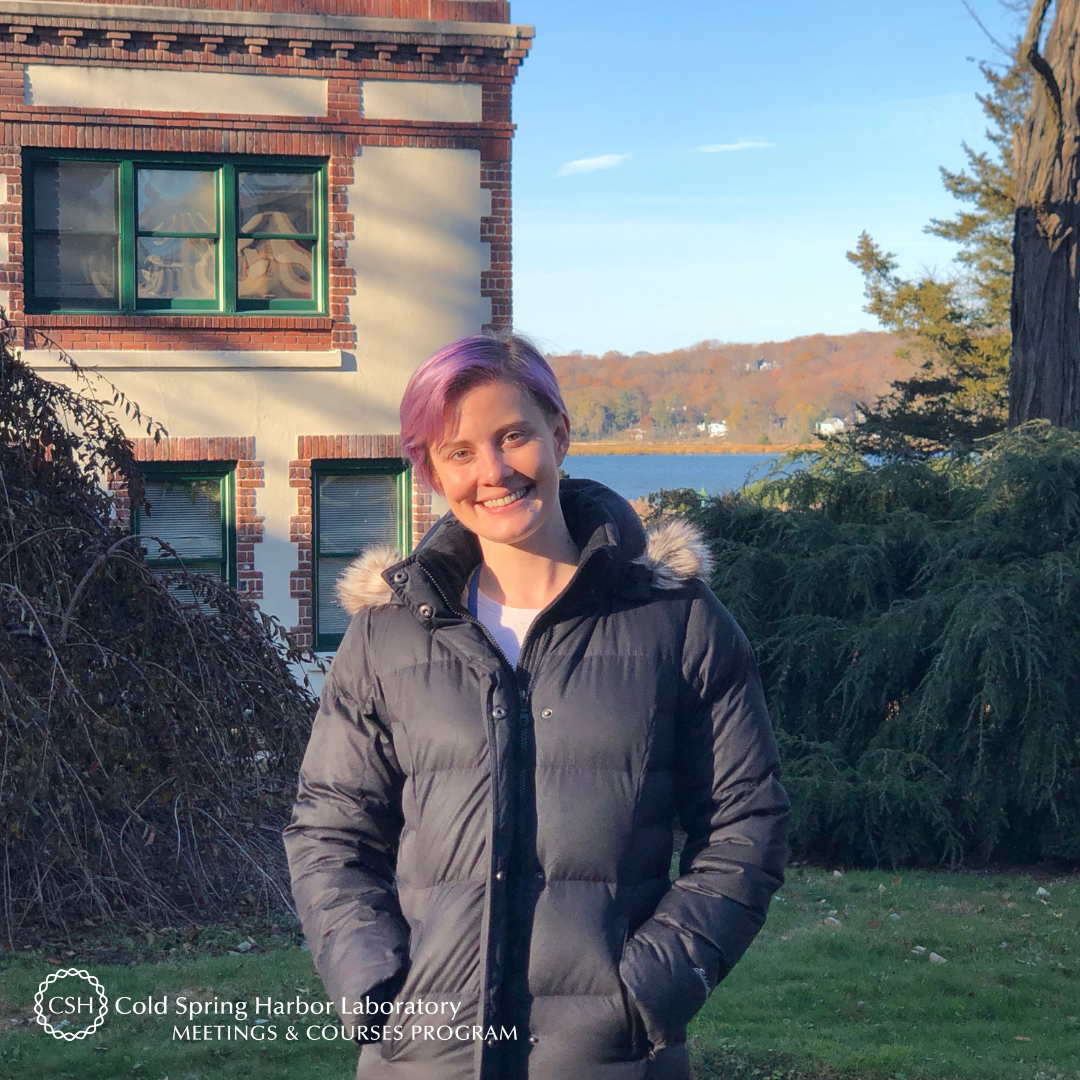Meet Sessaly Reich of the College of Veterinary Medicine in the University of Missouri-Columbia. The second-year veterinary medical oncology resident and PhD student in the Comparative Oncology Radiobiology and Epigenetics Laboratory is two weeks into our three-week training course on Advanced Sequencing Technologies & Applications to increase her understanding of the various next generation sequencing platforms available for her to sequence her sizable datasets. This is her first course at CSHL has been a “positive experience” and we look forward to having her back again.
What are your research interests? What are you working on?
My research interests are the epigenetic signature of cancers in dogs, specifically lymphoma. I’m also interested in translational aspects of immunotherapy treatment in canine osteosarcoma (bone cancer), which closely mirrors the genetic landscape and clinical behavior of pediatric osteosarcoma.
How did you decide to make this the focus of your research?
The University of Missouri Veterinary Health Center Oncology Service participates in a variety of clinical trials. We are able to enroll client-owned dogs and cats with spontaneously occurring cancers in order to promote translational research, while directly benefiting animals who otherwise do not have available treatment options. The results from our studies have provided enough evidence to move treatments forward to development in humans.
How did your scientific journey begin?
I became interested in the genetic risk for disease and translational research during veterinary school, where I enrolled in a dual DVM/MS program. I initially studied the relationships between genetic polymorphisms in a phase II detoxification enzyme (glutathione S-transferases), enzyme activity, and lymphoma risk in dogs. When my own dog developed lymphoma during my veterinary curriculum, I was further inspired to learn more about treating and even preventing this disease.
Was there something specific about the Advanced Sequencing Technologies & Applications course that drew you to apply?
The subject of my research is defining the epigenetic landscape of lymphoma in dogs, with specific stratification according to breed and lymphoma subtype. We hope to use this information to provide prognostic information, select different treatments, and predict which dogs are at a higher risk of developing -- or will soon develop -- lymphoma. Understanding all of the next generation sequencing platforms, along with their individual strengths and weaknesses, is essential when dealing with massive amounts of sequencing data.
What and/or how will you apply what you’ve picked up from the course to your work?
The next stage of my PhD project will revolve around analyzing whole genome bisulfite sequencing (WGBS, DNA methylation) and bulk RNA sequencing (RNAseq). While the benchtop portion of these techniques has been optimized in my lab, I personally have limited bioinformatics data processing experience. I want to analyze my own data in order to filter results according to biological relevance and applicability, rather than relying exclusively on an outside bioinformatician. The University of Missouri-Columbia is also beginning collaborative efforts with the bioinformatics team at Washington University, and I want to be able to effectively communicate and grasp both the clinical and bioinformatics aspects of larger translational projects moving forward.
What is your key takeaway from the Course?
While I’m far from being an expert in bioinformatics, this Course has provided me with the groundwork to begin processing my own NGS data. I also know where to go for further training/education and how to use the many resources available to researchers.
If someone curious in attending this course asked you for feedback or advice on it, what would you tell him/her?
Do as much preparation with the materials provided prior to arrival. It will help you get the most out of the Course. That being said, be prepared to be very busy and be pushed outside of your comfort zone.
What do you like most about your time at CSHL?
My favorite thing about being at CSHL is meeting peers from a wide variety of specialties with an incredible array of skillsets. This provided a unique environment for changing your perspective in order to learn as a group, in addition to fostering collaboration and collegiality.
Thank you to Sessaly for being this week's featured visitor. To meet other featured scientists - and discover the wide range of science that takes part in a CSHL meeting or course - go here.

